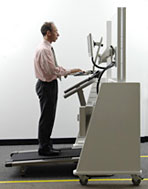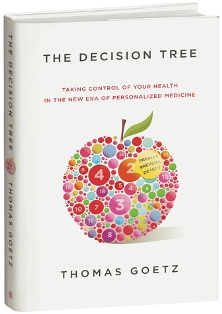March 15th, 2011 by Maria Gifford in Announcements, Medblogger Shout Outs
No Comments »
 Grand Rounds will be hosted right here at “home” at Better Health on Tuesday, March 22th, 2011.
Grand Rounds will be hosted right here at “home” at Better Health on Tuesday, March 22th, 2011.
Please send your blog-post submissions via e-mail by 12:00AM midnight CT on Saturday, March 19th, to: maria.gifford@getbetterhealth.com.
Please include:
- “Submission for Grand Rounds” in the subject line of your e-mail.
- Your name (blog author), the name of your blog, and the URL of your specific blog-post submission.
- A short summary (1 to 3 sentences) of your blog post.
There’s no specific theme for this edition of Grand Rounds — just send us something really smart or deep or profound that will move us and make us all think harder about health and medicine.
For more information, please see the Grand Rounds Submissions Guidelines. We look forward to receiving your submissions and featuring them here next week. Thank you!
– Maria Gifford, Director of Content, Better Health
September 19th, 2010 by Maria Gifford in Better Health Network, Expert Interviews, Health Tips, Research
No Comments »
 Obesity doesn’t stand a chance against Dr. Jim Levine, one of the prestigious presenters at Mayo Clinic’s Transform 2010 conference last week. Dr. Levine’s fascinating research focuses on helping people understand obesity, weight reduction, and Non-Exercise Activity Thermogenesis (NEAT) — the idea that expending calories through the activities of daily living is more important for calorie burning than exercise is.
Obesity doesn’t stand a chance against Dr. Jim Levine, one of the prestigious presenters at Mayo Clinic’s Transform 2010 conference last week. Dr. Levine’s fascinating research focuses on helping people understand obesity, weight reduction, and Non-Exercise Activity Thermogenesis (NEAT) — the idea that expending calories through the activities of daily living is more important for calorie burning than exercise is.
Dr. Levine’s “Treadmill Desk” has won more than 50 national and international awards in science, including the Judson Daland prize from the American Philosophical Society, the Invention of the Future Award from NASA, and the Innovation Award at the World Fair. The “Walkstation” is now a product of Steelcase.
Dr. Levine’s work has been highlighted nationally around the world, and he has produced documentary films with the BBC, ABC, and CNN. His Walkstation has been featured in The New York Times, his vision of a future where office people walk at work in USA Today, and his Treadmill Desk tested live on Good Morning America. Read more »
September 16th, 2010 by Maria Gifford in Better Health Network, Health Tips, Interviews, News, True Stories
No Comments »
 As an invited media guest at Mayo Clinic’s Transform 2010 symposium earlier this week, I had the pleasure of interviewing presenter Thomas Goetz, Executive Editor of Wired Magazine and author of the new book, The Decision Tree: Taking Control of Your Health in the New Era of Personalized Medicine.
As an invited media guest at Mayo Clinic’s Transform 2010 symposium earlier this week, I had the pleasure of interviewing presenter Thomas Goetz, Executive Editor of Wired Magazine and author of the new book, The Decision Tree: Taking Control of Your Health in the New Era of Personalized Medicine.
Thomas writes about science, health, and medicine and believes that engaging people in their health and involving them as participants and decision makers leads to improving their behavior and their health outcomes. He knows there’s a technology emergence of cheaper, better tools that have the ability to offer people a way “in” — from self-tracking gadgets to online disease communities and beyond. Thomas is intrigued by the confluence of ideas and technology that make it an opportune time in healthcare.
 The Decision Tree is based on the premise that our health doesn’t happen all at once, but that it’s a consequence of years of choices — some large, some small, some wise, some poor. A decision tree, therefore, is a “device” that can help make it more obvious that these decisions are something we are actually choosing — a way to externalize the choices that we otherwise make without much thought.
The Decision Tree is based on the premise that our health doesn’t happen all at once, but that it’s a consequence of years of choices — some large, some small, some wise, some poor. A decision tree, therefore, is a “device” that can help make it more obvious that these decisions are something we are actually choosing — a way to externalize the choices that we otherwise make without much thought.
Maria: As executive editor of Wired Magazine, what brought you to write a book about consumer health?
Thomas: I come from a family of healthcare providers — my father is a doctor, my mother is a nurse — so it’s always been a topic area I’ve been comfortable with. A few years ago I felt that I had more to add, and wanted to get more specific in my training, so I got my masters in public health at UC Berkeley. That led me to recognize all sorts of commonalities between the worlds of information technology and public health. At the same time, technologists in Silicon Valley and elsewhere have recognized that healthcare is one of the last industries untouched, in many senses, by the IT revolution. It’s happening now, very quickly, and I wanted to be among the first to not only cover the business, but to cover the way these companies and services will change and improve our lives. Read more »
September 14th, 2010 by Maria Gifford in Better Health Network, Health Policy, Interviews, Research, True Stories
No Comments »
 Appearing as a Second Life 3D virtual-world avatar at Mayo Clinic’s “Transform 2010” symposium (watch the video here), Mrs. Q — a teacher and the anonymous author of the blog “Fed Up With Lunch: The School Lunch Project” — told the story of how her unique health mission has come to be. She’s determined to help people understand just how sick our “healthy” school lunches really are.
Appearing as a Second Life 3D virtual-world avatar at Mayo Clinic’s “Transform 2010” symposium (watch the video here), Mrs. Q — a teacher and the anonymous author of the blog “Fed Up With Lunch: The School Lunch Project” — told the story of how her unique health mission has come to be. She’s determined to help people understand just how sick our “healthy” school lunches really are.
Mrs. Q has sparked the interest of child health advocates around the country. Thanks to programs like First Lady Michelle Obama’s “Let’s Move Initiative” and Jamie Oliver’s “Food Revolution,” the nation is paying more attention to childhood obesity and school lunch reform.
Mrs. Q’s blog was started because of her own experiences with school meals after she ate the food prepared at school because she forgot her lunch at home. She keeps her identity a secret due to fear of losing her teaching job. Read more »
May 18th, 2010 by Maria Gifford in Better Health Network, Health Policy, Health Tips, Medblogger Shout Outs, News, Opinion, Research
4 Comments »
 As the newly-appointed director of content for Better Health and personal editorial advisor to the infamous Dr. Val, I’ve been given the honor of hosting this edition of Grand Rounds — a weekly summary of the best health blog posts on the Internet.
As the newly-appointed director of content for Better Health and personal editorial advisor to the infamous Dr. Val, I’ve been given the honor of hosting this edition of Grand Rounds — a weekly summary of the best health blog posts on the Internet.
This week’s submissions cover a nice mix of issues important to health and medicine, which I’m presenting in super-organized, far-from-creative alphabetical order. (Excuse my conservativeness as I’m originally a product of the Mayo Clinic, and even after jumping ship nearly five years ago, I’m still affected due to my unchanged physical location — I’ll find my more liberal social-media sea legs soon, promise!)
From geriatrics to Viagra, PET scans to personality disorders, dentists to American Idol, you’ll find it in this ever-so-tidy session of Grand Rounds.
Best of health,
Maria
GRAND ROUNDS: EDITION 6.34
A Healthy Piece Of Mind puts cancer in the context of the Serenity Prayer: The Audacity Of Trope: Cancer Stories.
ACP Hospitalist reports that the FDA has launched a campaign to help healthcare providers report misleading drug advertising and promotion: Join The Ad Police!
ACP Internist writes that telemedicine is changing the playing field in primary care as internists sign up to diagnose patients over the Internet: Doctors Delivering Diagnoses Online.
Behaviorism And Mental Health shares the idea that it’s wrong to consider certain lifestyles and mindsets as pathological: Personality Disorders Are Not Illnesses.
Colorado Health Insurance Insider blogs about how hospitals that don’t treat Medicaid patients will end up losing money under the new healthcare reform law: Colorado Expanding Access To Medicaid And CHP+.
Diabetes Mine writes about American Idol contestant Crystal Bowersox and how the media has reacted to her having diabetes: Doin’ Her Thing With The ‘Betes.
EverythingHealth offers tips on how to keep kids safe when communicating with others on the Internet: Keeping Kids Safe On Social Networking Sites.
Health AGEnda discusses a recent article calling for improved training in geriatrics for primary care physicians: Report From The Brain Trust.
HealthBlawg tells how electronic health records will soon be required as a condition of licensure for doctors and healthcare centers in Massachusetts: HIT Incentives In Massachusetts: Less Carrot, More Stick.
HealthNewsReview comments on Senator David Vitter’s recent request to have the U.S. Department of Health and Human Services remove breast cancer screening recommendations from its website: Senator Strikes Out By Politicizing Mammography Recommendations.
How To Cope With Pain explains that change is hard and offers the helpful advice of trying “half a habit” at first: Change A Habit Slooowly.
In Sickness And In Health (U.K.) summarizes new research that suggests that Viagra may improve the delivery of chemotherapy drugs in women with breast cancer that has spread to the brain: Viagra Could Help Women Too, But Not How You Think.
In Sickness And In Health (U.S.) writes about couples and illness, describing how other relationships in your life can affect your health or your partner’s health: My Mother, My Partner?
Jill Of All Trades, MD provides a public health doctor’s tips for patients who don’t have health insurance: My Top-15 Resource List For The Uninsured.
Laika’s MedLibBlog highlights research on how lack of sleep can affect your risk for obesity, diabetes and heart disease: What One Short Night’s Sleep Does To Your Glucose Metabolism.
Lockup Doc talks about when non-psychiatric illnesses in people with mental health histories are minimized or dismissed by healthcare providers: Psychiatric Patients With Medical Illness May Not Be Taken Seriously.
MD Whistleblower warns that dentists’ habit of overprescribing penicillin has “serious consequences” for patients: Why Do Dentists Prescribe Antibiotics So Often?
MedInnovationBlog talks about the obsession Americans have with medical technology and how it affects healthcare: Americans And Their Medical Machines.
Mental Notes debunks myths about depression after childbirth and reports on a recent study that used PET scanning to identify new moms at higher risk: What Causes Postpartum Depression?
Novel Patient shares thoughts on facing life’s difficulties and how to keep a positive attitude: Seeing Double.
Nutrition Wonderland presents new research on obesity that helps explain why dieting doesn’t always work as expected: When Cutting Calories Doesn’t Cut It.
Nuts For Healthcare says that “big pharma” should pay attention to significant advances in vaccine development: Vaccines, Vaccines…And How We Got To Provenge.
Supporting Safer Healthcare highlights confidentiality concerns about using portable data devices to store sensitive healthcare information and patients’ medical records: Lost Data Causing “10-Out-Of-10” Pain For Healthcare.
Suture For A Living tells the story of a recent brush with domestic abuse and provides resources to get help if you need it: Domestic Violence.
The Covert Rationing Blog conducts an “intervention” on behalf of two fellow medical bloggers in regards to American obesity, discrimination, and “demonizing” the obese: Defending The Anti-Obesity Movement, Again.
The Examining Room Of Dr. Charles tells the story of how a patient triggered memories of a doctor’s first experience with human anatomy: White Silken Ribbons.
The Happy Hospitalist says one group of physicians at his hospital wants to be compensated for their time on call: Should Hospitals Pay Doctors To Be On Call?
 Grand Rounds will be hosted right here at “home” at Better Health on Tuesday, March 22th, 2011.
Grand Rounds will be hosted right here at “home” at Better Health on Tuesday, March 22th, 2011.

 Obesity doesn’t stand a chance against Dr. Jim Levine, one of the prestigious presenters at Mayo Clinic’s
Obesity doesn’t stand a chance against Dr. Jim Levine, one of the prestigious presenters at Mayo Clinic’s  As an invited media guest at Mayo Clinic’s
As an invited media guest at Mayo Clinic’s  The Decision Tree is based on the premise that our health doesn’t happen all at once, but that it’s a consequence of years of choices — some large, some small, some wise, some poor. A decision tree, therefore, is a “device” that can help make it more obvious that these decisions are something we are actually choosing — a way to externalize the choices that we otherwise make without much thought.
The Decision Tree is based on the premise that our health doesn’t happen all at once, but that it’s a consequence of years of choices — some large, some small, some wise, some poor. A decision tree, therefore, is a “device” that can help make it more obvious that these decisions are something we are actually choosing — a way to externalize the choices that we otherwise make without much thought.  Appearing as a
Appearing as a  As the newly-appointed director of content for Better Health and personal editorial advisor to the infamous
As the newly-appointed director of content for Better Health and personal editorial advisor to the infamous 







